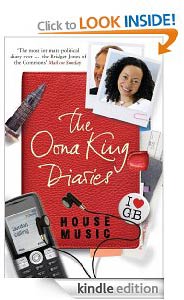Electoral Reform: A breed apart
The Commons has a disproportionate number of privately educated white men - not exactly representative
There are many strange things about sitting on the green benches of the House of Commons – from the men in tights wielding silver-buckled swords (Sergeant at arms), to the fishing-net of tiny microphones dangling above your head. But the thing I never got used to was more prosaic yet profound: that the politicians don’t look like the society that puts them there. For a start four out of every five MPs are men. Of that, there are only two black women and not a single Asian woman amongst them. And since each party usually gets a number of MPs out of proportion to the votes they receive, our polity fails a basic test: it fails, in reality, to be a representative democracy. The result, massively compounded by the expenses scandal, is that voters now feel MPs are a breed apart, with little sense of how modern Britain lives. For many of the MPs I worked with, this perception is unfair, but it is contributing to the erosion of democratic legitimacy.
Does multiculturalism have a future?
When people ask if multiculturalism has a future, the short answer is yes. But the question of how we secure that future is more complex than anyone imagined during the passage of the Race Relations Act 1976. At one level, multiculturalism is merely a statement of fact: many cultures living side by side. But minority groups also view multiculturalism as a bulwark against assimilation, a rejection of the cultural blancmange that inevitably discards their heritage in favour of pearly kings and queens.
Multiculturalism asserts the rights of minority groups to celebrate and maintain their own cultures and, more importantly, to access resources from a state historically riddled by institutional racism. Minority groups should view with fear and trepidation the backlash against multiculturalism, and the move away from identity politics. Or should they? In fact, a move away from identity politics may actually help some minority groups escape the segregated backwaters – or inner city sink estates – that confound attempts to achieve meaningful integration.
Mixed Race, Mixed Blessing?
White supremacy is so last century. These days it’s on-trend to be a mixed-race supremacist. Unlike the BNP, mixed-race people can now point to an assortment of scientifically credible research that claims biological advantages to being mixed race. And that’s not to mention the anecdotal evidence citing young celebrities like Lewis Hamilton, Theo Walcott and Leona Lewis to prove the theory that mixed race people are healthier and prettier. If you spent your childhood being called a mongrel in the playground, the latest batch of research from Cardiff University’s School of Psychology may bring a smile to your face.
Lights, camera, action for diversity in 2010
I’ve often had a chance to reflect on the lack of diversity around me, not least during eight years as MP for Bethnal Green and Bow, sitting in Parliament surrounded by mostly white, middle-class men. But it was in a remote African village that I realised how ‘different’ I was. I arrived with a dozen MPs, and greeted the reception party. The chiefs and their entourage shook hands until they came to me – they assumed I was a strange type of Sherpa and handed me luggage to carry.
Whether you’re an African chief, a captain of industry, or Jamal Bloggs, it’s easy to typecast people. We make assumptions – especially in the workplace – about who is the ‘right type of person’ for the job. As a result many groups are under-represented or excluded.
Do women leaders have to be childless fortysomethings?
British politics at the top end? It's a sea of fortysomething white male faces. The real coalition is the Coalition of Chaps, and a country that is diverse and mixed-up, is represented by a political class that's anything but. Now, though, some excellent news: at least in London we might have a real choice, because Oona King, one of the best of the Labour women, will let it be known tomorrow that she wants to be mayor.
Yes, she will be taking on the always formidable Ken Livingstone in the race to be the Labour candidate; but King, who thought that Livingstone was a good mayor, points out that he has been around for four decades. "It's nobody's birthright, and I don't believe in the hereditary principle." So there is a chance of a mixed-race woman arriving to represent this most mixed of the world's great cities.


